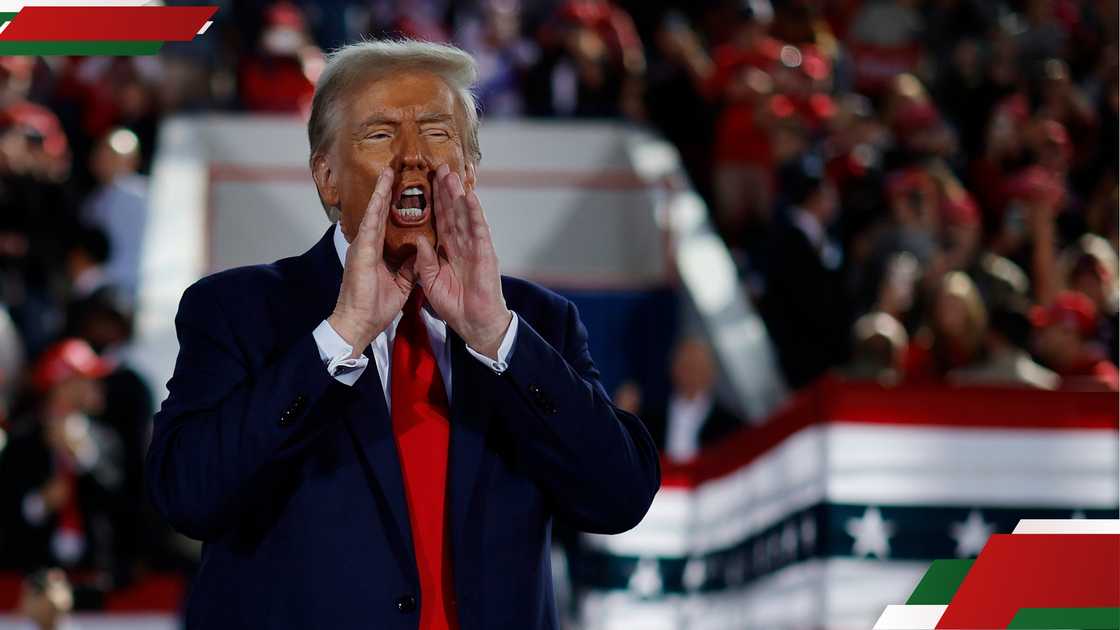US Halts New Student Visa Interviews Across All Embassies Including Kenya
- Secretary of State Marco Rubio has ordered all US embassies to halt scheduling new student and exchange visa interviews amid plans to expand social media vetting
- The new directive will apply to all student visa applicants, not just those flagged for activism, with officers instructed to review posts on platforms like Instagram, X, and TikTok
- This may disrupt US higher education, which saw over one million international students contribute approximately KSh 5.7 trillion to the economy in the 2023–2024 academic year
Nancy Odindo, a TUKO.co.ke journalist, has over four years of experience covering Kenyan politics, news, and features for digital and print media.
US embassies around the world have been ordered to stop scheduling new interviews for student visa applicants, following a directive from Secretary of State Marco Rubio.

Source: Getty Images
The directive came as President Donald Trump's administration is considering expanding social media vetting for all applicants.
According to the Guardian, the directive, issued in a cable sent to diplomatic posts globally, instructed consular sections to immediately halt scheduling new appointment slots for F, M, and J visa categories—those used by international students and exchange visitors—until further guidance is provided.
“Effective immediately, in preparation for an expansion of required social media screening and vetting, consular sections should not add any additional student or exchange visitor visa appointment capacity until further guidance is issued,” the cable stated.
Why has US halted new student visa interviews?
The suspension comes amid growing efforts by the Trump administration to tighten entry restrictions on foreign students, with officials citing concerns over national security and the alleged contribution of some students to what the administration describes as an “anti-Semitic atmosphere” on American campuses.
The State Department confirmed it is conducting a comprehensive review of screening procedures for student and exchange visitor visa applicants.
Guidance is expected soon on broader social media vetting measures, which will apply to all applicants, regardless of prior flags or involvement in activism.
Previously, enhanced social media screening was largely limited to students identified as having participated in pro-Palestine protests.
Under that protocol, consular officers were required to take permanent screenshots of any "potentially derogatory" content from applicants’ social media, even if it was later deleted.
The anticipated expansion would subject all applicants to a review of their online activity, including posts, shares, and comments on platforms such as Instagram, X (formerly Twitter), and TikTok.

Source: AFP
What will happen to students already scheduled for interviews?
BBC reported that the visa pause could deepen uncertainty for colleges and universities dependent on foreign student tuition, research talent, and cultural diversity.
However, the State Department memo allowed for interviews already scheduled to proceed as planned but instructed embassies to remove any unfilled appointments from their systems.
Responding to the growing concern, State Department spokesperson Tammy Bruce said:
“We take very seriously the process of vetting who it is that comes into the country, and we're going to continue to do that.”
The freeze on new appointments comes at a time when US higher education institutions are already facing a drop in international enrollment.
According to data from NAFSA: Association of International Educators, over one million international students contributed approximately KSh 5.7 trillion to the US economy and supported more than 378,000 jobs during the 2023–2024 academic year.
Trump blocks Harvard University from enrolling foreign students
In other news, the Trump administration revoked Harvard University's authorisation to admit international students.
The Department of Homeland Security announced the move after Harvard reportedly refused to comply with federal demands for student records and policy changes related to campus activism.
Officials gave Harvard 72 hours to comply with a list of demands—including providing disciplinary records and protest surveillance footage—to restore its enrollment privileges.
The university condemned the action as unlawful, warning that it threatens academic freedom and ongoing research initiatives.
Proofreading by Mercy Nyambura, copy editor at TUKO.co.ke.
Source: TUKO.co.ke

